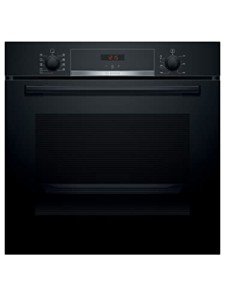How To Identify The Integrated Cooker And Hob That's Right For You
페이지 정보

본문

The Rise of Integrated Cookers and Hobs: A Comprehensive Guide
In the modern-day kitchen, efficiency, style, and space optimization are essential considerations for homeowners and striving chefs alike. Among the most substantial trends in kitchen design is the increasing popularity of integrated cookers and Integrated ovens hobs. These appliances not only boost the cooking experience however also elevate the looks of the kitchen area. This short article explores the characteristics, advantages, features, and considerations surrounding integrated cookers and hobs, offering readers with a comprehensive understanding of their advantages.
What Are Integrated Cookers and Hobs?
Integrated cookers and hobs describe cooking appliances that are built into the kitchen cabinetry, providing a smooth look and making the most of making use of space. Integrated appliances are developed to mix with the aesthetic of the kitchen instead of standing out like traditional designs.
Types of Integrated Cookers and Hobs
Typically, integrated cooking appliances include:
- Integrated Hobs: These are cooktops that fit flush into the kitchen built in oven counter top. They can be gas, electric, induction, or a mix of these innovations.
- Integrated Ovens: Built directly into the cabinets, integrated ovens can come as single, double, or multifunctional designs, offering varied cooking capabilities.
- Combination Units: Some designs combine an oven and hob into a single device, providing a compact service for smaller kitchen areas.
Advantages of Integrated Cookers and Hobs
1. Area Optimization
Integrated cookers and hobs are ideal for small kitchen locations. By embedding the cooking appliances into kitchen cabinetry, house owners can use their kitchen space more efficiently, leaving more space for meal preparation and motion.
2. Aesthetic Appeal
These appliances supply a smooth and modern look to the kitchen. The ability to choose finishes and incorporate them into the surrounding cabinets creates a unified style that boosts the overall appearance of the kitchen.
3. Enhanced Functionality
Integrated cookers and hobs often include innovative technology features, such as wise controls, timers, and cooking presets, improving user experience and allowing effective cooking.
4. Improved Safety
Many integrated hobs include precaution such as kid locks and automated shut-off features. This makes them safer than conventional freestanding designs, especially in homes with kids.
5. Increased Resale Value
Modern homes with integrated appliances often draw build in oven greater resale worths. Possible buyers search for smooth styles and contemporary benefits, making integrated cooks and hobs a smart investment.
Features to Consider When Choosing Integrated Cookers and Hobs
When selecting integrated cookers and hobs, numerous features should be taken into account:
1. Cooking Technology
- Induction: Provides quick and efficient cooking, easy to tidy, and provides exact temperature control.
- Gas: Offers standard cooking benefits with immediate heat but needs sufficient ventilation.
- intergrated electric oven: Provides constant heat and is readily available in different designs.
2. Size and Configuration
- Oven Capacity: Should suffice for the family's cooking requirements.
- Hob Size: Depending on the variety of burners/vessels required for simultaneous cooking.
3. Control Mechanisms
- Touch Controls: Provide a smooth look and ease of cleansing.
- Knob Controls: Offer tactile feedback and are easy to use.
4. Finish and Style
Integrated cookers and hobs been available in various surfaces, integrated ovens including stainless-steel, black glass, and even adjustable choices to match cabinets.
5. Energy Efficiency
Choose for energy-efficient designs that can save on energy expenses and lower ecological impact.
Upkeep and Care
To keep the performance and longevity of integrated cookers and hobs, routine maintenance is key:
- Clean the surface areas: Regularly clean down the hob and oven surface areas to prevent residue accumulation.
- Examine seals and gaskets: Ensure that oven seals are intact for effective cooking.
- Service routinely: Schedule expert maintenance to keep the appliances in leading shape.
Frequently asked questions
1. What is the distinction in between built-in and integrated cookers?
Response: Built-in ovens cookers are created to be set up within kitchen cabinets, whereas integrated cookers are developed to flawlessly mix with the cabinetry for a more cohesive look.
2. Are integrated appliances more expensive?
Answer: Generally, integrated appliances may have a greater in advance expense compared to freestanding units since of their style and the installation requirements. Nevertheless, they can offer long-lasting savings in energy performance.
3. Can I set up integrated cookers and hobs myself?
Response: While some property owners might be able to manage the setup themselves, hiring a professional is suggested to make sure proper fit and function, especially for gas appliances.
4. Are integrated cookers and hobs easier to clean?
Answer: Integrated hobs normally have less crevices, making them easier to clean up. Nevertheless, the specific cleaning requirements will depend on the products used in the appliance.
5. What should I inspect before purchasing?
Response: Check the size of your kitchen area, cooking needs, energy performance scores, and compatibility with existing cabinetry.
Integrated cookers and hobs are ending up being progressively preferred in contemporary cooking areas, combining functionality with aesthetic appeal. By understanding their advantages, functions, and upkeep needs, property owners can make educated decisions when selecting the right appliances for their cooking areas. As trends in kitchen design continue to evolve, integrated hob and oven cooking services will likely stay at the forefront of home development, guaranteeing both practicality and design.
- 이전글p2p서비스 다운 25.05.20
- 다음글부천룸 부천룸/상동룸/중동룸 부천룸 상동룸 25.05.20
댓글목록
등록된 댓글이 없습니다.